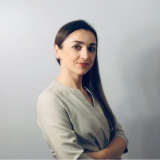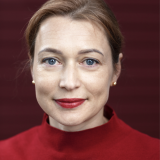Baltic | Kremlin Influence Operations in the Baltic and Beyond
This event is part of a partnership between Yale University and the University of New Haven.
In the last several years the intelligence services of the Russian Federation have committed increasing numbers of acts of sabotage in various European countries. This has included recruiting local individuals to carry out sabotage and to collect intelligence. The speakers at this symposium – award winning investigative journalists and academics – investigate these acts of hybrid warfare the Russian state is using in the Baltic countries of Latvia, Lithuania, and Estonia, as well as in several additional countries that Russia considers within its “near abroad.” In addition to outlining the nature and extent of these intelligence operations and describing Russia’s strategy, the speakers will discuss local resistance and resilience – what governments, media, and civil society in the Baltic and beyond are doing to counteract these influence operations of the Kremlin.
Schedule
| 9:00 am |
Inga Springę Russia’s influence methods in Latvia and the response by government, media, and civil society |
| 9:50 am |
Holger Roonemaa Will the Baltic countries be next? What are Russia’s real ambitions in Estonia, Latvia and Lithuania? |
| 10:40 am | Break |
| 11:10 am |
Shota Gvineria Russia’s coherent strategy in the near abroad: from active measures to hybrid warfare |
| 12:00 pm | Lunch Break |
| 1:30 pm |
Michael Weiss (Online) Tallinn’s Spycatchers: Russia’s intelligence threat and Estonia’s counterintelligence capability |
| 2:20 pm |
Olena Lennon Russia’s interference in foreign elections as an instrument of hybrid warfare |
| 3:10 pm | Break |
| 3:40 pm |
Matthew Schmidt Defending the recovery: how Ukraine can prevent a Russian victory after major combat |
| 4:30 pm | Final Discussion |
Morning sessions chaired by Howard Stoffer (University of New Haven)
Afternoon sessions chaired by Bradley Woodworth (University of New Haven / Yale University)
Speakers
Ambassador Shota Gvineria joined the Baltic Defence College as the lecturer in Defence and Cyber Studies in July of 2019. He is also a senior fellow at the Economic Policy Research Center since 2017. Earlier, Amb. Gvineria has been working in various positions in Georgia’s public sector. Among other positions, Shota Gvineria served as the Deputy Secretary at the National Security Council of Georgia. He held the position of the Foreign Policy Advisor to the Minister of Defense of Georgia in 2015-16. Through 2010-14, he served as the Ambassador of Georgia to the Kingdom of the Netherlands. In 2010 he was promoted to the position of a Director of European Affairs Department at the Ministry of Foreign Affairs of Georgia. Prior to that, he served as a Head of NATO Division at the Ministry of Foreign Affairs of Georgia. In the period from 2006 until 2008, Shota Gvineria was posted as the Counselor of the Georgian Mission to NATO. Amb. Gvineria holds MA in Strategic Security Studies from Washington’s National Defense University. He also earned his MA in International Relations from the Diplomatic School of Madrid and Public Administration from the Georgian Technical University.
Olena Lennon, Ph.D., is an Adjunct Professor of National Security at the University of New Haven, where she teaches such courses as the U.S. Foreign and Defense Policy, International Relations, Intro to National Security, and the Russia-Ukraine War. An Eastern Ukraine native, she also serves as an election observer with the Organization for Security and Cooperation in Europe (OSCE); she has completed several election observation missions in Eurasia. Formerly a Fulbright scholar and most recently a Title VIII Scholar at Woodrow Wilson Center’s Kennan Institute in Washington, D.C., Olena has dedicated her research to domestic and international politics of Ukraine, as well as Eurasian geopolitics and security writ large. Dr. Lennon also serves on Freedom House’s team of Ukraine experts that produces a yearly “Freedom in the World” report focused on assessing Ukraine’s domestic political environment. She has also conducted Ukraine country studies training for U.S. advisors to Ukraine’s Ministry of Defense, under the auspices of the United States European Command (EUCOM) Office of Defense Cooperation (ODC).
Holger Roonemaa is a 2024-25 Knight-Wallace Fellow at the University of Michigan. He manages the investigative and fact-checking team at the daily news site Delfi Estonia. He is also an editor with the Organized Crime and Corruption Reporting Project (OCCRP). He has covered money laundering, corruption and evasion of sanctions, as well as topics related to national security, espionage and propaganda. In recent years, the majority of his investigations have focused on Russian security threats in Baltic countries. He led and coordinated the “Kremlin Papers” and "Kremlin Leaks" projects, high-profile investigative collaborations that detailed election interference, information manipulation and territorial aggression by Russian president Vladimir Putin.
An expert on strategic analysis in foreign affairs, U.S. politics, security, and military matters, University of New Haven Associate Professor of National Security and Political Science Matthew Schmidt, Ph.D., has taught strategic and operational planning at the Army’s Command and General Staff College, consulted on doctored maps of a downed Russian jet with the Senate Arms Services Committee, been a representative to Ukraine’s post-revolution presidential election, and visiting professor of stability operations at the Army War College. Dr. Schmidt was also named #22 on Fast Company’s list of the 100 most creative people in America for his work bringing design techniques from architecture into military planning.
An expert on defense and intelligence, Russia, Ukraine, Vladimir Putin, Europe, and U.S. foreign policy in North Korea and elsewhere, he also was part of the core team on the Project on National Security Reform, an initiative sponsored by Secretary of Defense Robert Gates, which recommended major reforms to the U.S. intelligence and national security community after 9/11. His work has given him deep insight into the political dynamics of these issues. He is the co-host of Impolitic, a podcast that examines current issues in politics, national security and international affairs.
Inga Spriņģe is an award-winning investigative journalist, broadcaster, lecturer, and one of the two founders of The Baltic Center for Investigative Journalism Re:Baltica based in Latvia. Springe is a member of the major international investigative journalism networks ICIJ and OCCRP. Her topics cover propaganda, disinformation, and social justice.
Editor at The Insider. Author of forthcoming history of the GRU.






